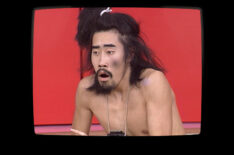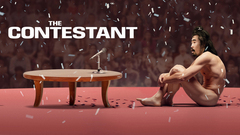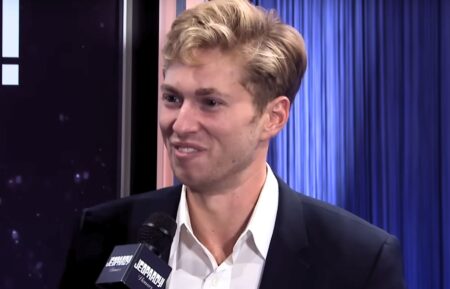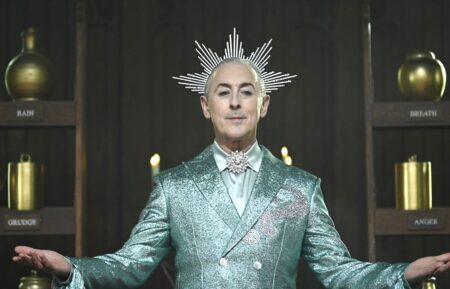‘The Contestant’ on Hulu: Why Nasubi Doesn’t Regret Doing ‘Denpa Shonen’ All These Years Later
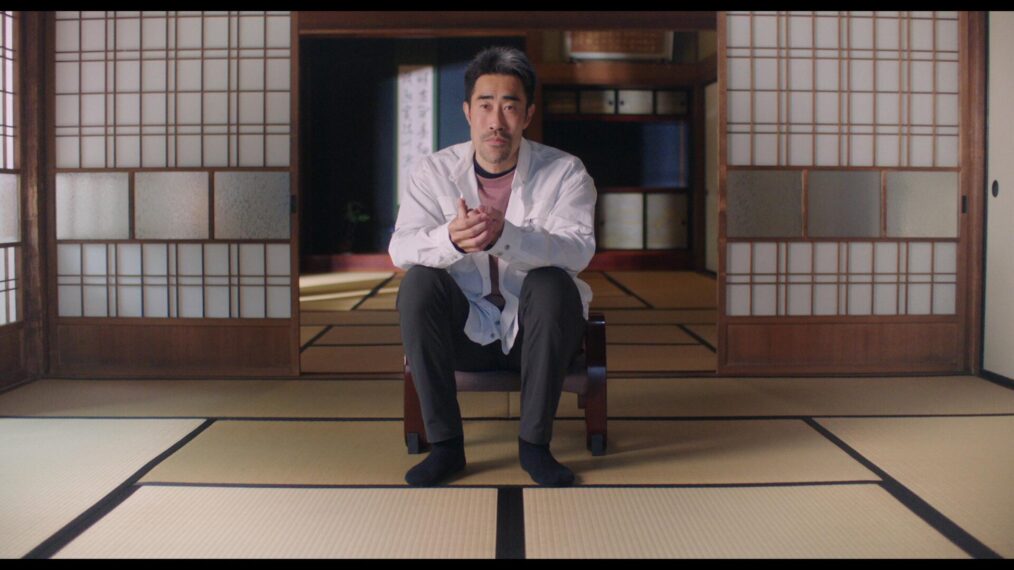
Hulu‘s latest documentary is a downright doozy that is both hilarious and horrifying at the exact same time. The Contestant, which is available to stream as of Thursday, centers on the very wild story of Tomoaki Hamatsu aka Nasubi, a Japanese man who was recruited by a respected producer, Toshio Tsuchiya, to star in a nebulous show and subsequently ended up living more than a year of his life in solitude, surviving on sweepstakes prizes, and showing off his slide into insanity (while naked, no less) to millions of rapt viewers.
Called Denpa Shonen: A Life in Prizes, the show launched in 1998 as Nasubi was dropped off in a small barren apartment with a camera, stripped of everything he owned (including every stitch of his clothes), and left to apply for sweepstakes and learn to survive on the winnings. As The Contestant details, Nasubi was challenged to collect ¥1 million worth of prizes during his adventure, and even when he did so, the nightmare didn’t end. The viewership was simply too much to stop the cameras from rolling.
In all, it took 15 months of isolation for Nasubi to finally be freed — even though he wasn’t locked in, he still felt obliged to stay through it all — and it took him years after that to wrap his head around the The Truman Show-meets-Black Mirror ordeal he’d just been through.
TV Insider caught up with Nasubi to talk about the documentary and what else fans should know about his experience in Denpa Shonen — including why he doesn’t regret doing the world’s weirdest reality broadcast. (Note: Nasubi’s answers were translated into English by his on-site translator and edited for clarity.)
What is it like for you to revisit this experience all these years later for The Contestant?
Nasubi: It’s kind of a wonder because 25 years later, not just in Japan, but people in the world are interested in this story. So that is kind of mysterious — because as far as I’m concerned I don’t really realize that I have done something really incredible or something so unusual. And so it’s interesting why people in the world are so interested.
There has been a lot of reality TV that’s come since the show first aired. Is there anything you’ve seen that reminds you of what you went through?
I really don’t watch reality TV, so I’m not in a position to say any opinions about it. But since I was one of the very first to be in the reality show, before YouTube and everything … My experiences working in the reality shows right now, I’m not sure about that. But compared to the time that I was there, there’s no protection for the staff of the reality show. Now, at that time, I had no protection for myself. So regarding the human rights issues and so on, the reality shows nowadays are more protected, and they are making sure that people don’t really get hurt, injured, that kind of thing. So it’s more trustworthy in my humble opinion.
You mentioned in the series having suffered mental health issues, did they provide you did the producers provide you with any type of counseling or therapy after it was done?
Well, at that time, I was a very tough person, mentally and physically. That’s why I could endure that kind of situation. But at that time, they were saying like, “Oh, if you need help, just let us know,” that kind of thing. But it was more casual wording, so they did not provide any mental health experts because I looked kind of normal on the surface. So they had no idea what kind of mental health issues I had at that time. I wasn’t even aware, of course. I had a hard time dealing with people, of course. But it didn’t really come up to the surface that I needed professional help in mental health at that time.
How long did it take before you really could understand what happened?
At the time, I was kind of high with the achievement and also the new freedom that I regained. So of course, I didn’t know that I was being broadcast. So afterward, I was told and I watched a few and then I started to think, “Oh, people were watching me naked.” And then, little by little, I started to understand that mental health side of me… but then at the same time, people were coming to me telling me, “Oh, it was fun. You did such a great job. You’re amazing.” So I felt like because of the great reviews people were giving me that I felt like I shouldn’t really show the mental problems that I might have had on the surface. So I kind of pushed it down. At that time, I wasn’t really aware of it also.
When you first did this and signed up for the show, you wanted to be a comedian. You want it to make people laugh. But then, at the end, you seem to get upset that they were laughing. What was that like for you?
Yes, I wanted to be a comedian and I really wanted to make people laugh. I knew that I was being filmed, so I was conscious about it. But then I was told that this may not be aired, so I didn’t know about it. So in my mind, it wasn’t about making people laugh. My instinct for survival kicked in, so I just have to survive and do whatever to get out of this. So I have to achieve this sweepstake goal to get out. So whenever I get the little product in the contest, I get a joy — that was a really genuine joy that I felt, but it was at the same time it was a fight with solitude, loneliness, and all other things. So I realized that my heart was breaking little by little, and so I couldn’t really afford to think about making people laugh at the end. It was my instinct for survival to kick in.
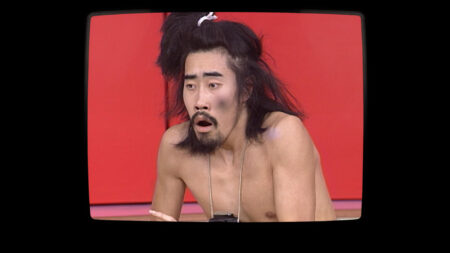
When you found out that they were they were selling your diaries and that you were being broadcast all over the world to millions of people. Obviously, a lot of money was made. How do you feel about what you got out of it?
Money is something that people are always interested in. Some of the money that I have received for doing this is much more than what people expect… I was happy at that time.
I haven’t really read the diary myself from beginning to the end because I was just busy fighting against myself, actually. And that that was one way for me to stay sane…. So it was written, that was a cry of my heart, a cry for life. So I cannot just look back and read it, and it is not something fun to read for me. However, because of the elements of it, the cry for heart, it became a best seller. But when I found out it was a bestseller, I was shocked. I didn’t know that the book was even published.
Did you think that the producer was using you or was being deliberately cruel by making you do it all over again?
Yes. Tsuchiya the producer wanted to push me to the edge, push me to be the loneliest — the lonelier that you are, the more interesting footage he can get. So that was the premise of the show. So AD — the assistant — will come to my room every day, just to deliver the postcards and pick up the videos and so on. But he was told not to be talkative to me. So even when I started talking to him, there was no response. So I realized that they were actually on purpose, pushing me to the edge, detracting me from human contact. So I realized that with this person, even if I talk there’s no answer. No, that’s not really like a human being. So it’s like, that was the that’s when I realized that they were actually pushing me to the loneliness and solitude that kind of made me realize that they are very fearful people.
Another way that they treated you inhumanely was the type of prizes that you would win like dog food and other useless things.
The goal was to win prizes until we reached 1 million yen in prizes. So, of course, edible things were necessary, but I have to enter other sweepstakes that had more value so that I can get to the goal and get out of here. So I even applied for overseas travels… I didn’t get it, but all kinds of things, unnecessary things. So that was just to achieve the 1 million yen place.
When you got to the last room, and it was actually on a stage, you stripped down thinking that it was another room. What was your initial thought when the walls fell down?
I was taken to Korea. I had no knowledge that I was back in Japan. So I didn’t know what was going on. I had no idea, I had no clue. …. I went blank for several minutes. I didn’t know what was going on. So there’s nothing to think about. It was just blank. You know, I had no clue what was going on. It took a long time for me to understand that I’m back in Japan, and I was in a situation like you have seen. Yeah, it took a long time.
You took this experience and did something really good with it. How did the show lead to you doing your rescue work and your humanitarian work?
It took a long time for me. It’s a long journey for me to make my heart into a positive action, geared to the positive things but when in 2011 went huge East Japan earthquake hit. I’m from Fukushima, so I went to the affected area, and people there were happy, encouraged by me. Because in this location, people were complaining about, “There’s no privacy, there’s not enough food,” and then they remember me. I had nothing, so I could tell them, “At least you have a human contact. It is very healthy for you that you are surrounded by those fellow people who care for each other.” So that kind of thing became bigger because of my experience of this reality show. I could help people in that way and give new hope. And say they said they realize, “Oh, you were eating dog food. We’re eating human food,” that kind of thing. … Sometimes I felt like I shouldn’t have done the reality show, but now I feel like I had to live with it and make a use of it.
The Contestant, Hulu
From TV Guide Magazine
What to Expect From 'The Hunting Party's Love Triangle and Mystery
Manifest alum Melissa Roxburgh and the showrunner of NBC’s Hunting Party tease TV Guide Magazine about what’s ahead for the “government conspiracy that just keeps unfolding” — plus, the series’ “good” love triangle. Read the story now on TV Insider.

